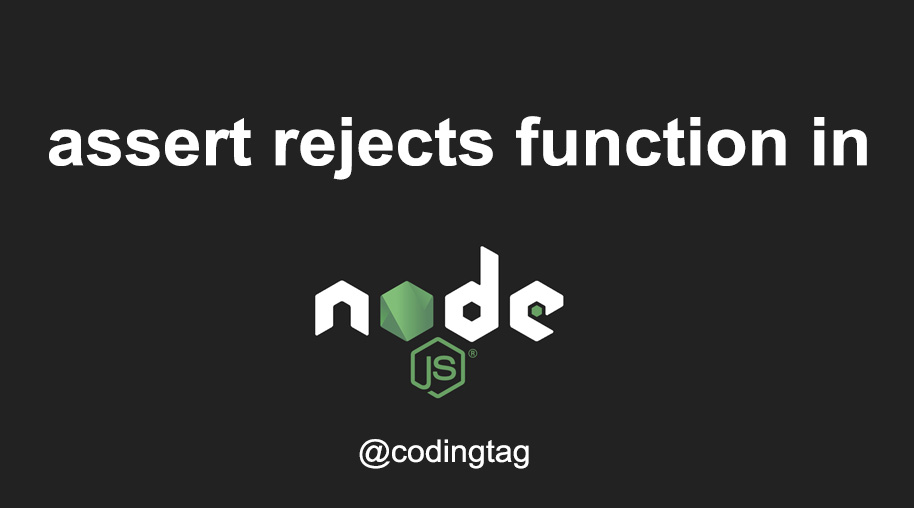dns.resolveAny() Method in Node.js
0 831
The
If you’re passionate about building a successful blogging website, check out this helpful guide at Coding Tag – How to Start a Successful Blog. It offers practical steps and expert tips to kickstart your blogging journey!
For dedicated UPSC exam preparation, we highly recommend visiting www.iasmania.com. It offers well-structured resources, current affairs, and subject-wise notes tailored specifically for aspirants. Start your journey today!
dns.resolveAny() method in Node.js is a versatile tool that resolves a given hostname to any available DNS record. It can return multiple types of DNS records, making it a flexible choice for applications that need to gather a variety of DNS information. This method is part of the dns module, which provides various DNS-related functions for network programming in Node.js.
What is DNS Resolution?
DNS (Domain Name System) resolution is the process of translating human-readable domain names (such asexample.com) into machine-readable IP addresses (like 192.168.1.1) or other resource records. DNS records are different types of data stored in DNS servers, such as A records (IPv4 addresses), AAAA records (IPv6 addresses), and MX records (mail exchange servers), among others.
The dns.resolveAny() Method
Thedns.resolveAny() method is used to resolve a hostname to any type of available DNS record. This method returns an array of records, which can include different types of data, such as A, AAAA, CNAME, MX, TXT, and more. It’s a useful method when you’re not sure what kind of DNS record you’re working with, as it automatically fetches any available record for the given hostname.
Syntax of dns.resolveAny()
dns.resolveAny(hostname, callback);hostname: A string that represents the domain name or hostname (e.g.,'example.com') to resolve.callback: A callback function that gets called after the resolution is completed. It has two parameters:err: The error object, if any error occurred during the resolution process.records: An array of resolved DNS records for the given hostname. These records can include A, AAAA, CNAME, MX, and other types of records.
Example Usage
Here’s a basic example that demonstrates how to usedns.resolveAny() to resolve a domain name to any available DNS records:
const dns = require('dns');
dns.resolveAny('example.com', (err, records) => {
if (err) {
console.error('Error resolving domain:', err);
} else {
console.log('DNS records for example.com:', records);
}
});'example.com' using the dns.resolveAny() method. If the resolution is successful, the callback will return an array of DNS records associated with that hostname.
Error Handling
Just like other DNS resolution methods in Node.js,dns.resolveAny() can encounter errors if the hostname is invalid, the DNS server is unreachable, or no records are found for the given domain. It’s important to handle errors gracefully by checking the err object in the callback function. This ensures your application can deal with issues like network problems or invalid domain names.
Common Use Cases
Thedns.resolveAny() method can be particularly useful in the following scenarios:
- Gathering all available DNS records for a given hostname, especially when you're unsure about the record types.
- Building network monitoring tools or diagnostic utilities that need to fetch any relevant DNS data.
- Developing applications that need to work with multiple DNS record types (A, AAAA, MX, TXT, etc.) for a given domain.
Conclusion
Thedns.resolveAny() method in Node.js is a powerful tool for resolving a hostname to any available DNS record. It simplifies the process of gathering DNS information, especially when you need to retrieve a variety of record types. By handling errors appropriately and using this method effectively, you can enhance your Node.js applications' ability to interact with DNS servers and perform network operations seamlessly.If you’re passionate about building a successful blogging website, check out this helpful guide at Coding Tag – How to Start a Successful Blog. It offers practical steps and expert tips to kickstart your blogging journey!
For dedicated UPSC exam preparation, we highly recommend visiting www.iasmania.com. It offers well-structured resources, current affairs, and subject-wise notes tailored specifically for aspirants. Start your journey today!

Share:







Comments
Waiting for your comments